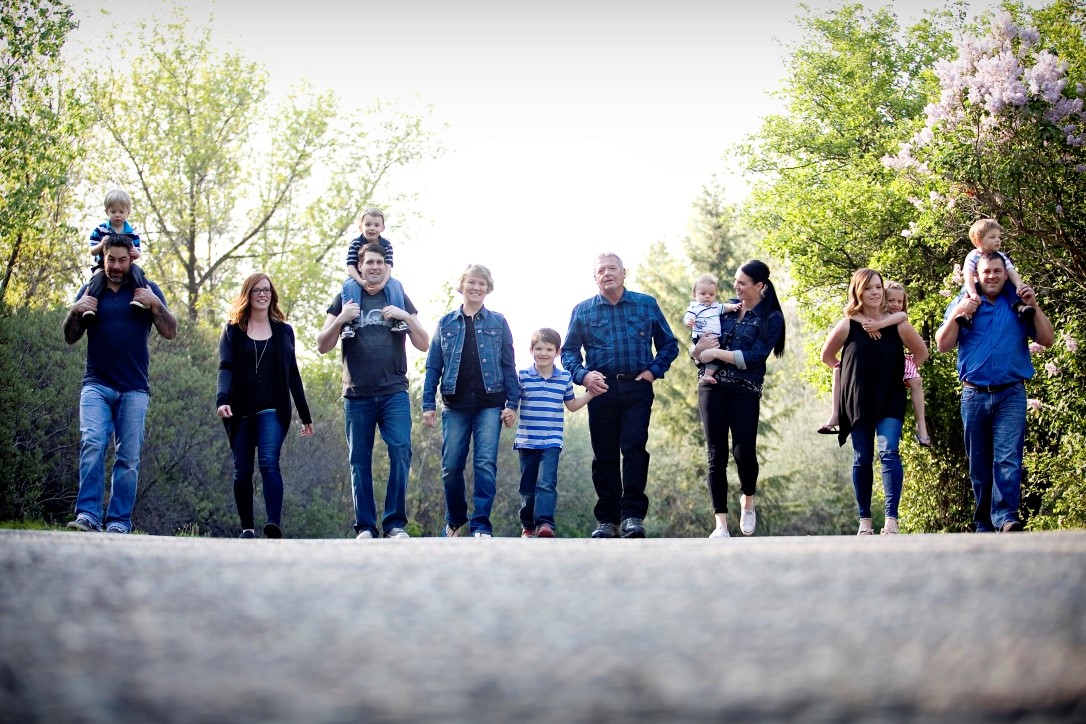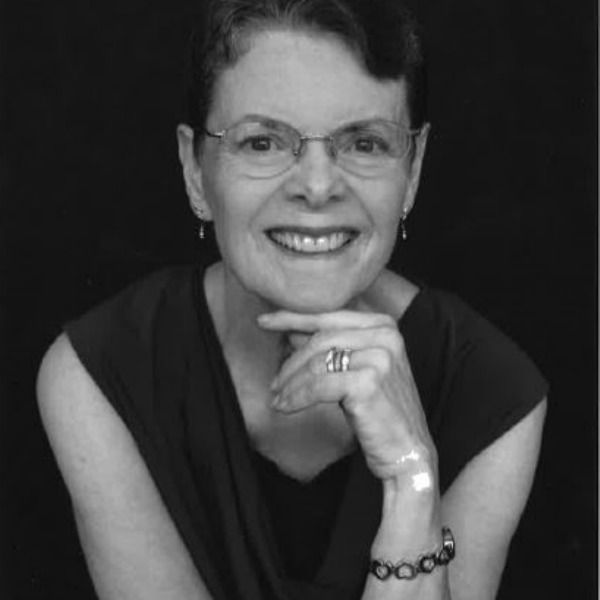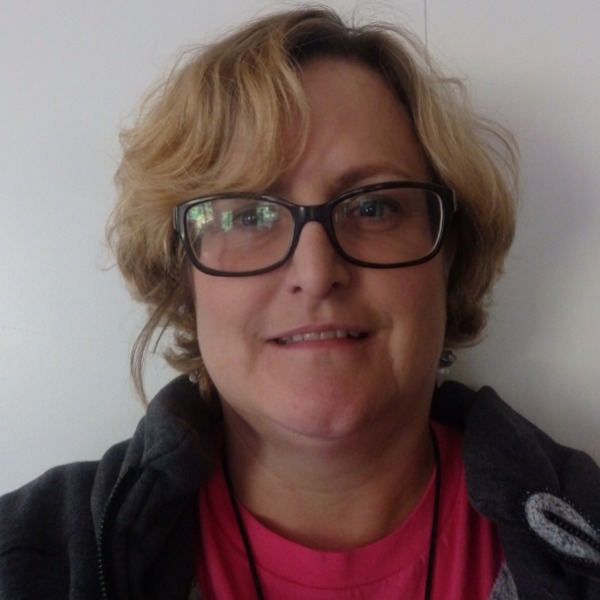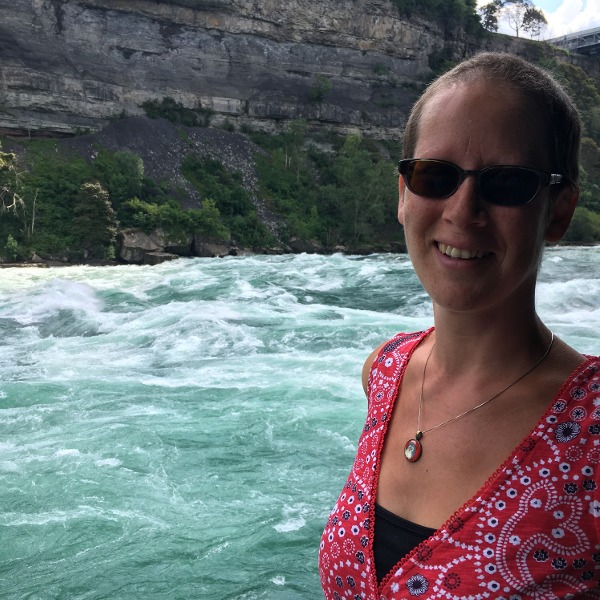It is with heartfelt sadness that we share that Jody Rutherford passed away from metastatic breast cancer on Sunday, September 29th. Jody was many things to many people, but we knew her best as a powerful advocate for people living with metastatic breast cancer. Her courage and determination to continuously advocate for increased research funding, better treatments and faster access to new therapies will continue to help others living with metastatic breast cancer.
She so powerfully and eloquently captured the heartbreak of running out of time in her blog post below. The time that she devotedly invested in her family, friends, community and fellow patients will continue to live on in them.
Today, we are honored to be able to share Jody’s story as both a tribute to her inspiring words as well as a powerful reminder of all that is at stake in our collective advocacy for metastatic breast cancer.
By Jody Rutherford

I have never been a fan of roller coasters: too much up and down made me feel sick. Ironically, my life seems to have become a gigantic roller coaster ride!
Initially I was diagnosed with breast cancer in 2002, and I was determined to survive and put this disease behind me. Diagnosis was quickly followed by a mastectomy, chemotherapy, and radiation treatments. With my surgeon, we decided on a second preventative mastectomy and completed a clinical trial for a bone strengthener (ironically, I was notified later I had been given the placebo.) Add in five years of tamoxifen and annual follow-up appointments for those five years, and I was confident we had this licked!
Eager to get on with my life, I set about doing just that, until 2013, when nagging back and rib pain led to a diagnosis of Stage IV metastatic breast cancer (MBC). To our dismay, we were told there is no cure for “mets” as they spread throughout the body, taking down one organ after another!
MBC is not something we were educated about at the closure of my first breast cancer experience. If I worried about recurrence, I tended to think local. The shock of this diagnosis eventually gives way to something much worse.
Devastation is what comes with this diagnosis, as one’s plans, hopes, and dreams are sidelined by simply trying to stay alive. As our family researches new treatment developments and advocates for research and quicker drug approvals, we struggle to “make time” to share moments with each other and just live.
The milestones—such as our six grandchildren entering school, loosing that first tooth, learning to skate, and beginning to play hockey, or as our adult children celebrate anniversaries, career changes and new opportunities, holiday travel, and trips to visit lifelong friends and family members—all of these take on a new significance.
It’s a strange existence, never knowing how long you have, or what the quality of your life will be during treatment, making planning difficult, if not impossible. One’s whole life seems divided into three-week segments. At this time, my chemo is done in two-week segments, given orally at home, before the return to my oncologist to find out if the “cancer markers” are increasing or decreasing. Repeated scans every three or four months either confirm the cancer is stable (not spreading further) or raise the red flags that something is going on, warranting more scans, or a change in treatment protocol.
One of the hardest things is adjusting to “but you look so great!” knowing that inside your body things are not great, that the disease is rarely dormant and if it is, it’s only resting while planning its next move! Sometimes, it is truly hard to believe this is my life now!
Time is the important commodity here: time to share with family and friends, time to access those all important new treatments in order to “buy” more, time to tell those we love how much they mean to us, time to advocate for better funding for research for metastatic breast cancer and all cancers, time to educate others about the devastating effect of this disease.
It is frustrating that people in government and pharmaceutical companies, who are responsible for negotiating price points for newly developed treatments, don’t seem to understand the importance of time to patients and their families, who are waiting for treatments. Or maybe they do understand, but they can’t or won’t prioritize that above the cost of the drug. These treatments we are waiting on have been approved federally, and are already available in other countries.
I attended a Living Beyond Breast Cancer conference in Philadelphia a couple of years ago, and remember being surprised by how aggressive our American counterparts seemed to be, as they sought to educate and bring attention to the plight of MBC patients. At that time, I couldn’t understand the need to have “die-ins” to raise awareness because at that point I hadn’t yet needed to fight for access to a treatment.
Today, I have a different perspective, as our family has waited over 18 months for approval of a treatment which clinical trials have proven can make a significant difference in the time a patient has for living.
Meetings with politicians, including our Minister of Health, only occurred after hours of work, relentless follow up, many emails and letters. Multiple contacts with pharmaceutical representatives, participation in research, and advocacy bring us to where we are today. Still waiting.
Now more than ever there’s no time to wait. I may be looking at another change in treatment protocol, without knowing what that may bring, what the side effects may be, and how that might impact quality of life and the remaining time with family and friends that is so critical.
Words fail me, as I sob into my pillow at night, wishing and wishing that I could “save time in a bottle,” so that I have some when mine is running out. I’m not asking for a cure, just for more time. It’s not the big things I will miss, but the ordinary moments that fill our hearts with happiness.
My heart breaks anew each time I think about missing Papa’s joy in sharing the emerging personalities of our grandchildren, and not sharing the joy and pride of our daughters and sons-in-law as their children grow and learn. I ache when I think of missing each little boy’s grin as he spins a story for Gramma, not getting to share a little girl’s tea party or marveling at her wonderful reading, not seeing and celebrating their report cards, no trips to play at the park, no birthday parties, and no camping trips. Gone will be the lazy summer days at the beach, sharing a good glass of wine, family holidays, and all the special times where we share memories and laughter.
Time is of the essence, and drug approvals and availability for all patients and their families cannot come soon enough!
Photo by: Rachel Boekel Photography
Join our campaign to share stories, pics and advocacy to increase drug access for patients. #MBCNoTime2Wait









